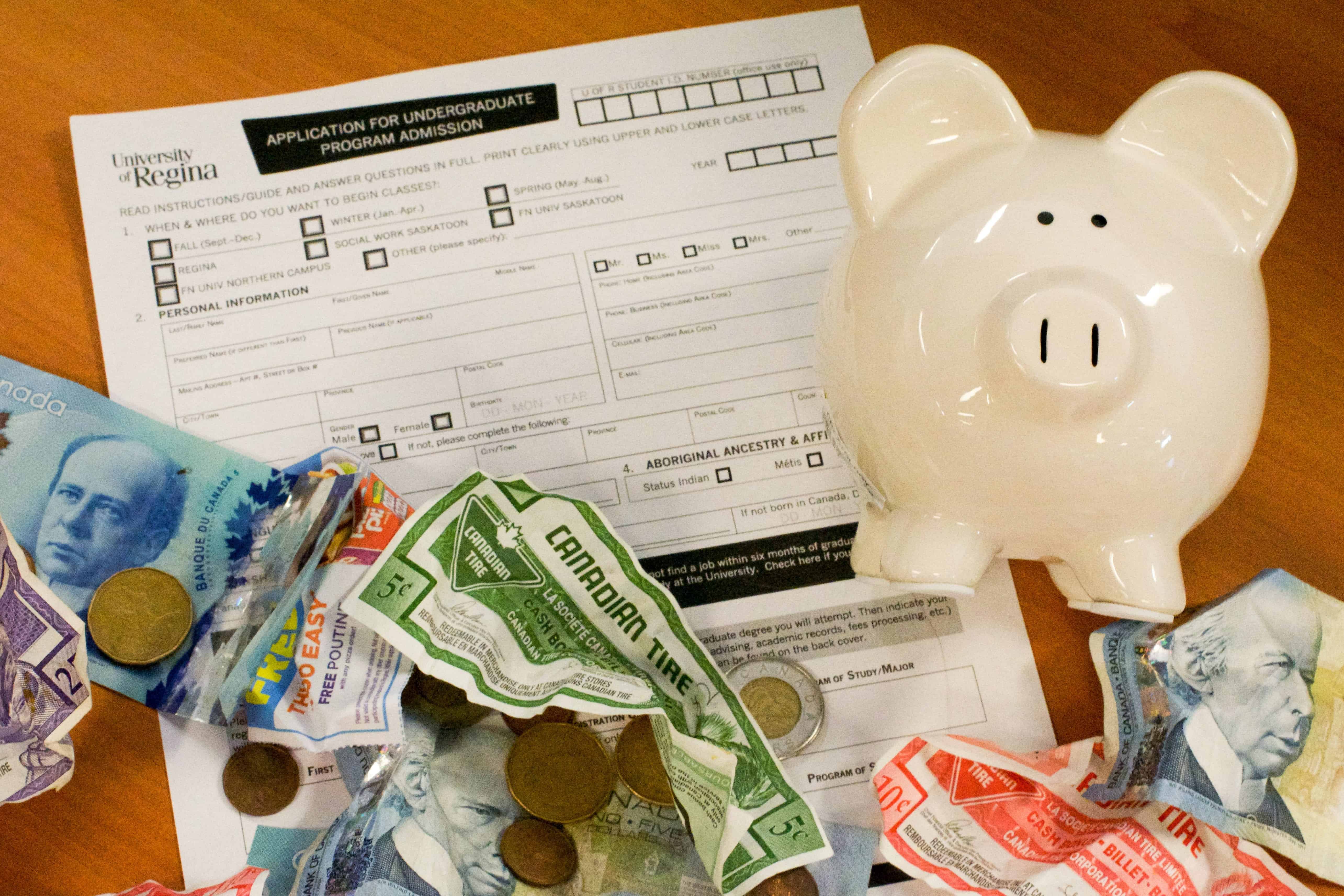
Essentially, everything costs too damn much
Tuition at the University of Regina will be increasing to between $5,983.90-6,926.40 per ten-class year, a 3.8-5.0% increase from last year dependent on one’s program.
Arts students enrolled in three classes this semester will pay $2,078.00 in tuition and fees. Four classes – $2,677.25 – and those enrolled in five classes will pay $3,276.50. Business administration students enrolled in five classes this year will pay $3,785.25.
The Canada Mortgage and Housing Corporation states that the average monthly rent for a two-bedroom apartment in Regina is $1,055 and expected to continue to rise with increasing property taxes and slow growth in vacancy rates. High speed internet for students in Regina ranges from $25 to $110; no longer a luxury item, regular internet access is a necessity for students in the digital age.
Driving, parking, and insuring one’s car in Regina can cost into the hundreds of dollars per month; the university charges $39/month to park in the school’s M-lots, with night passes available at a discount. Cost for a post-secondary student’s transit pass is $54 per month.
A student in Regina can expect to spend up to $150 a month on food. Assuming the majority of students drive or bus to the university and eat food they purchase and live in a shared space, they can expect to spend up to one thousand dollars a month in Regina on the above essentials.
In addition to that the full-time student must pay an average of $500 and $750 per month on tuition (or assume that much in student debt). This factor does not include textbooks, which vary greatly from program-to-program and student-to-student, but is another cost added to the financially strained student.
We ran into a former student, Andrew Maltman, who attended the university in the past and asked him for his opinion on the tuition increase, “For someone who doesn’t have a lot of spare money around and wants a post-secondary education, I could see why they would be less attracted to the university.”
Minimum wage in Saskatchewan will be going from $10 to $10.20 on October 1. In order to make the one thousand-plus dollars required to pay for an apartment, food, transportation, and other amenities, a student must work approximately twenty-five hours per week. This amount may vary depending upon how much a student is paid and if that student is receiving financial aid, this is the wage offered for most entry-level, part-time retail and service jobs available to the young student with little experience.
The university made $67,338,000 from tuition and fees paid by students in 2013-2014. The university is expected to generate $71,152,000 from tuition and fees paid this year.
This $3,764,000 increase in funding is accompanied by an increase in federal and provincial government funding of $3,570,000 – bringing state funding of the university to $113,048,000.
Students finding themselves in dire financial straits are more and more plentiful in Regina. While the tuition increase is less than previous years, it exists alongside great increases to the cost of living in the city of Regina.
As the Carillon reported earlier this year, the university is undergoing a period of expansion, which is matched by making older parts of campus more accessible.









